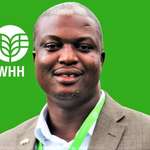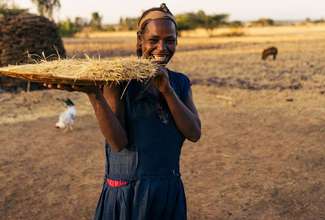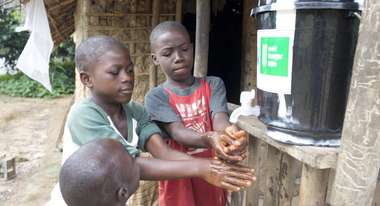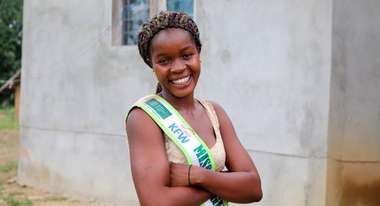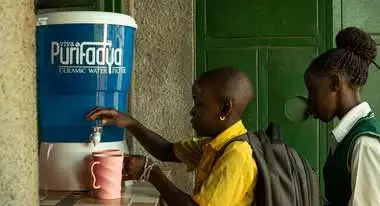Bringing Water, Sanitation and Hygiene to Jaytoken
As a member of the Pump Management Committee in Jaytoken, Norah, a 36-year-old petty trader, has helped change the hygiene and sanitation of the community's residents.
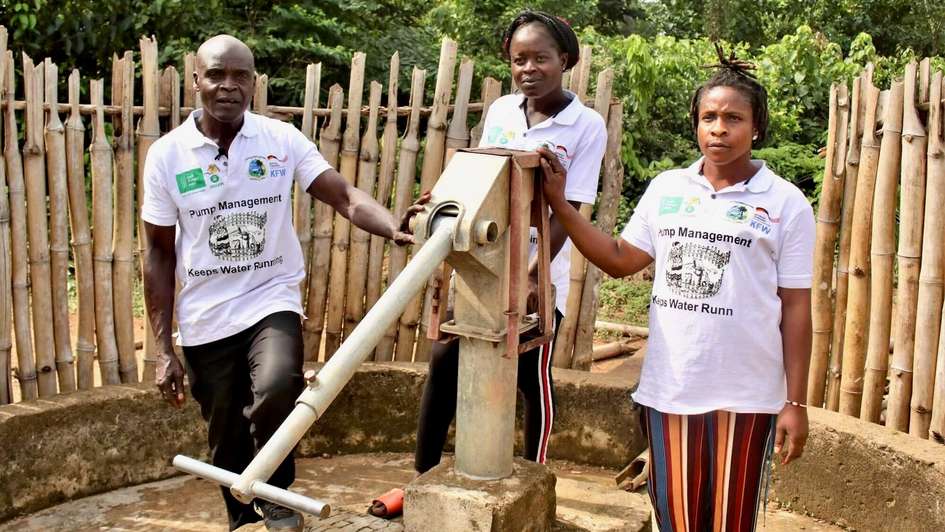
In Jaytoken – a remote town in River Gee County, southeast Liberia – poor hygiene conditions and sanitation are the leading causes of child mortality. When communities lack access to clean water and adequate sanitation services, preventable childhood illnesses like diarrhea become prevalent. Diarrhea from poor sanitation can also contribute to malnutrition and weakened immune systems, putting children at risk of severe infections.
WHH WASH initiatives help families
In response, Welthungerhilfe (WHH) commenced WASH initiatives in Jaytoken. A Participatory Rural Appraisal (PRA) was done with the community to identify and prioritize their needs. The PRA enabled the community to realize the root cause of the increase in waterborne diseases.
WHH introduced Community-Led Total Sanitation (CLTS) in Jaytoken and trained the community on environmental sanitation and personal hygiene. An awareness campaign was launched across the villages, promoting better hygiene practices.
Norah, a 36-year-old woman, lives with her family in Jaytoken. Like many women in remote regions, Norah was unable to finish her schooling. She earns money as a petty trader to support her family. Her husband, Moses, is a backyard gardener. He raises money seasonally from selling his garden crops, and at the end of each harvest season, Moses invests his earnings in the small business managed by his wife.
They have since been able to expand the business's size and use it to support their family. The couple has been married for nine years and have five children. "I sell fried doughnuts and other goods. This is what I do, and it has been helping me to save at least 3,000 Liberian Dollars (US$20) every week," says Norah.
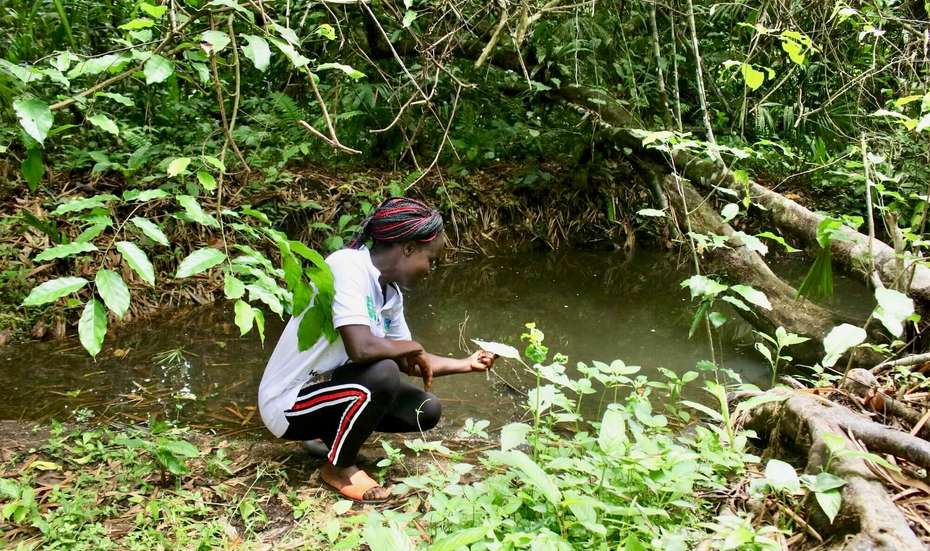
Sanitation challenges
Like Norah and her husband, about 90% of the residents of Jaytoken gain their primary income from farming or petty trading. Jaytoken has a population of about 2,466. Few people have a toilet at home to dispose of wastewater safely.
Health facilities and safe drinking water were barely accessible. The community fetched drinking water from a traditional creek called Sadaywulu (which, in the local language, denotes a deity of solution). During the rainy season, waste from the village, including garbage from dumpsites and animal waste, flows directly into the creek, rendering it unsafe for human consumption. Norah has depended on this source of water for most of her life. Now that she's the mother of five, she hopes to access safe water for her family, so they do not have to go through the dangers of lacking clean water.
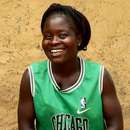
I wish that everyone in our village and neighboring villages can build their own latrine, because it is useful and healthy.
Norah Member of the Pump Management Committee of Jaytoken“My children were always sick. In a month, two to three of them are diagnosed with diarrhea, fever, or malaria. I spend over 5,000 Liberia Dollars each time I take a child for treatment to the clinic”, said Norah. There is no clinic in Jaytoken, so inhabitants of the village cover 35 kilometers to seek medical attention at a clinic in the town of Jobloken.
The prevalence of preventable diseases in the village affects the livelihood of Norah, especially the finances. “I get frustrated because the profits from my small business were all going to the payment of hospital bills, instead of being used to scale up my business and improve the lives of my family. I was only selling in the market to pay hospital bills,” says Norah. WHH partnered with the River Gee County Government to create awareness of good sanitation and hygiene practices to address the lack of proper sanitation facilities and provide safe drinking water. Norah and her family, together with other community members, built and maintained their bathrooms, latrines, dish racks, and garbage pits using local materials.
Improved sanitation improves lives
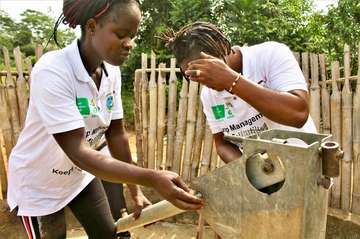
Jaytoken has improved its sanitation status since then. The community no longer drinks water from the creek – there are now water points at strategic locations across the town. The cases of diarrhea, malaria, and typhoid fever have declined. "I can now invest the profit from business and grow it." Norah explains, "I wish that everyone in our village and neighboring villages can build their own latrine, because it is useful and healthy. We can even use it when it rains." Norah is a member of the Pump Management Committee of Jaytoken. She was trained by WHH, together with other women and men, to repair the pumps in their community.
Her skills in repairing the pump have won her great admiration and respect in the community. WHH, with funding from the German development bank KfW, is building a maternal health care center, a triage center, and rehabilitating the incomplete primary health center that the Government of Liberia built in the community. These facilities will enable the community to have better access to health care. Norah and her family's day-to-day lives have improved with access to clean water and improved sanitation. She is also now a strong advocate in the community for water management and promoting sanitation and hygiene.




